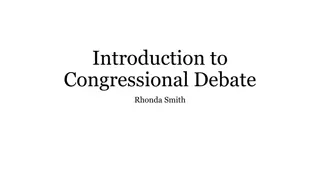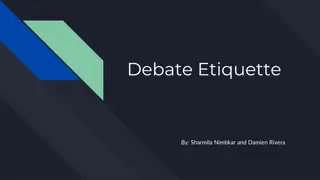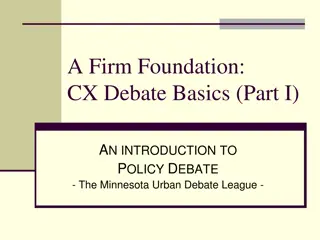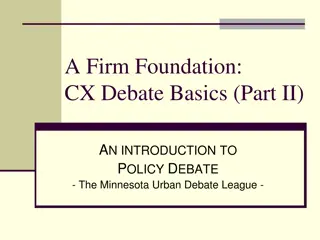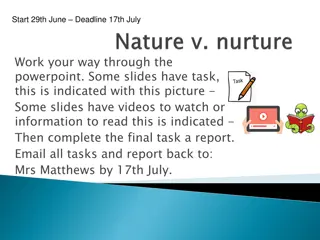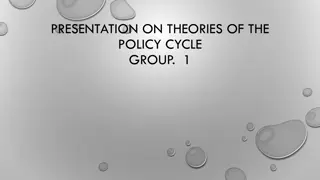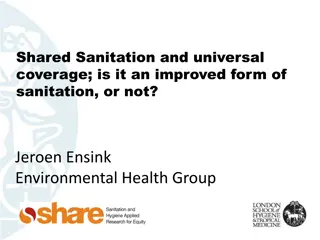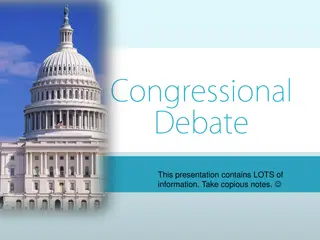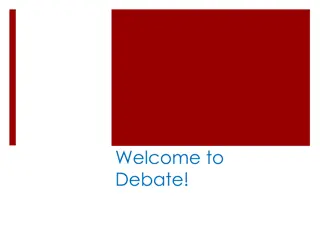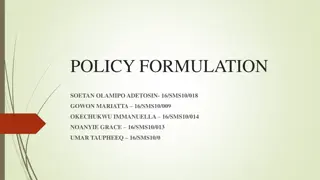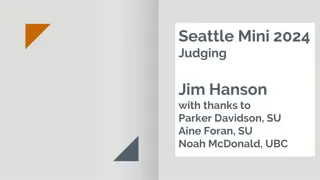Understanding Counterplans in Policy Debate
Counterplans in policy debate are alternative policies presented by the negative team that compete with the affirmative plan. They must be specific, competitive, and mutually exclusive to offer net benefits over the affirmative proposal. Nontopicality and competitiveness are debated aspects, with counterplans offering distinct advantages or solutions to the issues at hand. This introduction covers the key aspects of counterplans and their role in the policy debate setting.
Download Presentation

Please find below an Image/Link to download the presentation.
The content on the website is provided AS IS for your information and personal use only. It may not be sold, licensed, or shared on other websites without obtaining consent from the author. Download presentation by click this link. If you encounter any issues during the download, it is possible that the publisher has removed the file from their server.
E N D
Presentation Transcript
COUNTERPLANS IN POLICY DEBATE National Federation of State High School Associations An Introduction to Counterplans on the Water Resources Topic by Rich Edwards, Baylor University
WHAT IS A COUNTERPLAN? A counterplan is a policy defended by the negative team which competes with the affirmative plan and is, on balance, more beneficial than the affirmative plan.
RESPONSIBILITIES OF THE COUNTERPLAN Specificity: The counterplan text must be explicit Nontopicality: Some theorists say the counterplan must represent the NON-resolution Competitiveness: The counterplan must give the judge a reason to choose between the plan and counterplan.
COUNTERPLAN SPECIFICITY Sample Counterplan Text: Example 1: State counterplan: The 50 state governments will implement each of the protections of water resources mentioned in the affirmative plan: protecting wetlands, promoting safer agricultural methods, regulating fracking, etc. Example 2: Point-Of-Use Water Filters: The affirmative proposes to replace all water supply lines, whereas the counterplan proposes to have states provide water filters, while also banning federal funding for replacement of water supply lines using plastic piping.
COUNTERPLAN NONTOPICALITY Though some judges will continue to think this is important, many contemporary debate theorists say it is NOT, for the following reasons: 1. The affirmative team is asking for adoption of the PLAN not the resolution. 2. Competitiveness provides adequate protection against abuse. 3. Ground is preserved, since the affirmative team had free opportunity to choose its position first from anywhere within the resolution.
COUNTERPLAN COMPETITIVENESS Mutual Exclusivity: It is logically impossible to do both the plan and counterplan. Net Benefits: The counterplan alone is more beneficial than the plan plus the counterplan (in practice this means that the counterplan avoids a key disadvantage offered by the negative). Other (suboptimal) Possibilities: Resource competition, Philosophical differences
MUTUAL EXCLUSIVITY It is logically impossible to adopt both the plan and the counterplan. Example: In the case of Counterplan Example 2: The counterplan proposes to ban federal funding for plastic supply lines. The negative would claim that it is logically impossible to both require and to ban supply line replacement. Problems with Mutual Exclusivity: Usually the competitiveness argument based on mutual exclusivity is artificial because the text of the counterplan simply bans the plan. Often the affirmative team will suggest ways that the essence of the plan could be combined with the essence of the counterplan.
NET BENEFITS Net Benefits competitiveness shows why it would be undesirable to combine the plan and counterplan; as a practical matter, there is some disadvantage to the plan which the counterplan does not link to. Technically speaking, net benefits means that the counterplan alone is more advantageous than the plan plus the counterplan. In the Counterplan 1 example, the negative team would claim that even though it is logically possible to have both the states and the federal protect water resources, the counterplan alone is is superior because it would avoid both the politics disadvantage and the federalism disadvantage.
PERMUTATIONS A permutation is an argument offered by the affirmative to demonstrate the non-competitiveness of a counterplan; it suggests a specific way that the plan and counterplan can be desirably combined in order to avoid the negative disadvantage(s). Consider the following example: The affirmative plan calls for the replacement of water supply lines and the negative counterplan calls for state funding of point-of-use water filters. The affirmative permutation claims that the plan and counterplan can be desirably combined: Replacement of water supply lines, combined with the installation of point-of-use water filters, will be an even more optimal solution since the combination of the two would provide an even safer supply of drinking water.
COUNTERPLANS IN POLICY DEBATE www.nfhs.org



